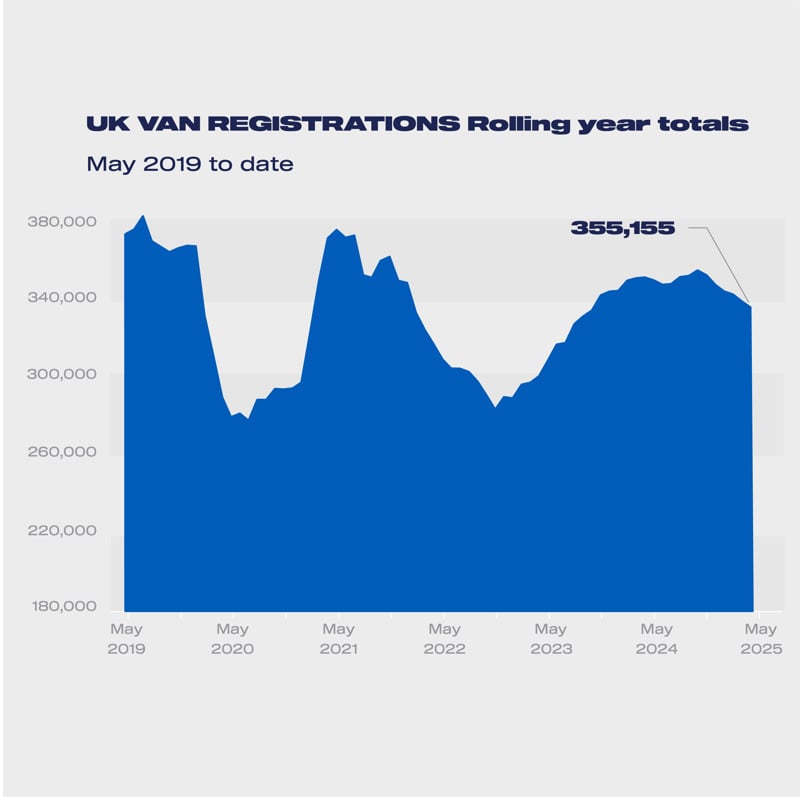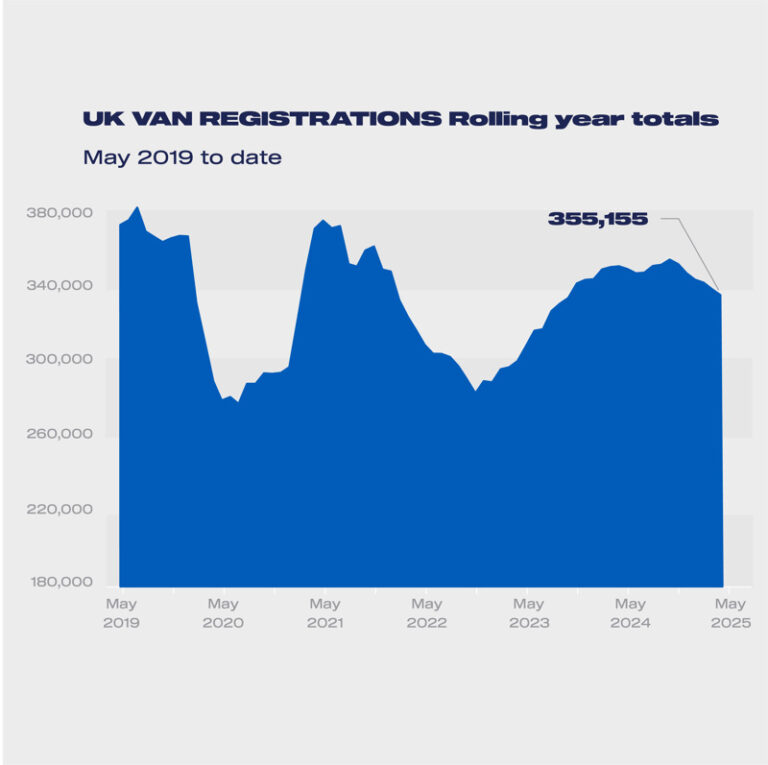The UK’s light commercial vehicle (LCV) market continued its downward trend in May, with an 11.8% decline in registrations to 22,796 units, as reported by the Society of Motor Manufacturers and Traders (SMMT). This marks the sixth consecutive month of decline and the weakest May performance since 2022, largely due to low business confidence affecting fleet renewal.
Market Performance
Demand fell across most segments, with large van registrations dropping by 14.0%, medium vans by 9.2%, and small vans by 7.8%. Pickup registrations also decreased by 12.7%, following the introduction of new tax rules in April that treat double-cabs as cars for benefit-in-kind and capital allowance purposes. The only growth area was the new 4×4 segment, which rose by 36.9%.
Impact of Tax Changes
The SMMT warns that these tax changes risk keeping older vehicles on the road longer while reducing government revenue due to falling sales. The organization is calling for a postponement of these reforms by at least a year to give the market more time to adapt, especially with more low- and zero-emission models becoming available.
Rise of Electric Vans
Despite the overall downturn, battery electric vans (BEVs) continued to grow, with registrations rising by 50.0% to 1,731 units in May. This marks the seventh consecutive month of growth, reflecting manufacturers’ investments in electrification and the increasing range of BEV models available. However, electric vans still accounted for only 7.6% of the total market in May and 8.2% year-to-date, half the 16% share mandated by the Zero Emission Vehicle Mandate for 2025.
Industry Response
The SMMT emphasized the need for accelerated investment in charging infrastructure to support the transition to electric vehicles. Mike Hawes, SMMT chief executive, stated that punitive taxes, such as those on double-cabs, will restrict wider growth and that fleet renewal with the latest, cleanest models must be encouraged.
Sue Robinson, chief executive of the National Franchised Dealers Association (NFDA), noted that while electric van registrations are rising, with a 53.7% year-on-year increase, concerns remain about the practicalities of operating electric LCVs.

The image shows the trend in UK LCV registrations over the years, highlighting the recent decline.
Conclusion
The UK LCV market faces challenges due to economic conditions and tax changes. However, the growth in electric van registrations offers a positive note, albeit with the need for further infrastructure development and policy support.



